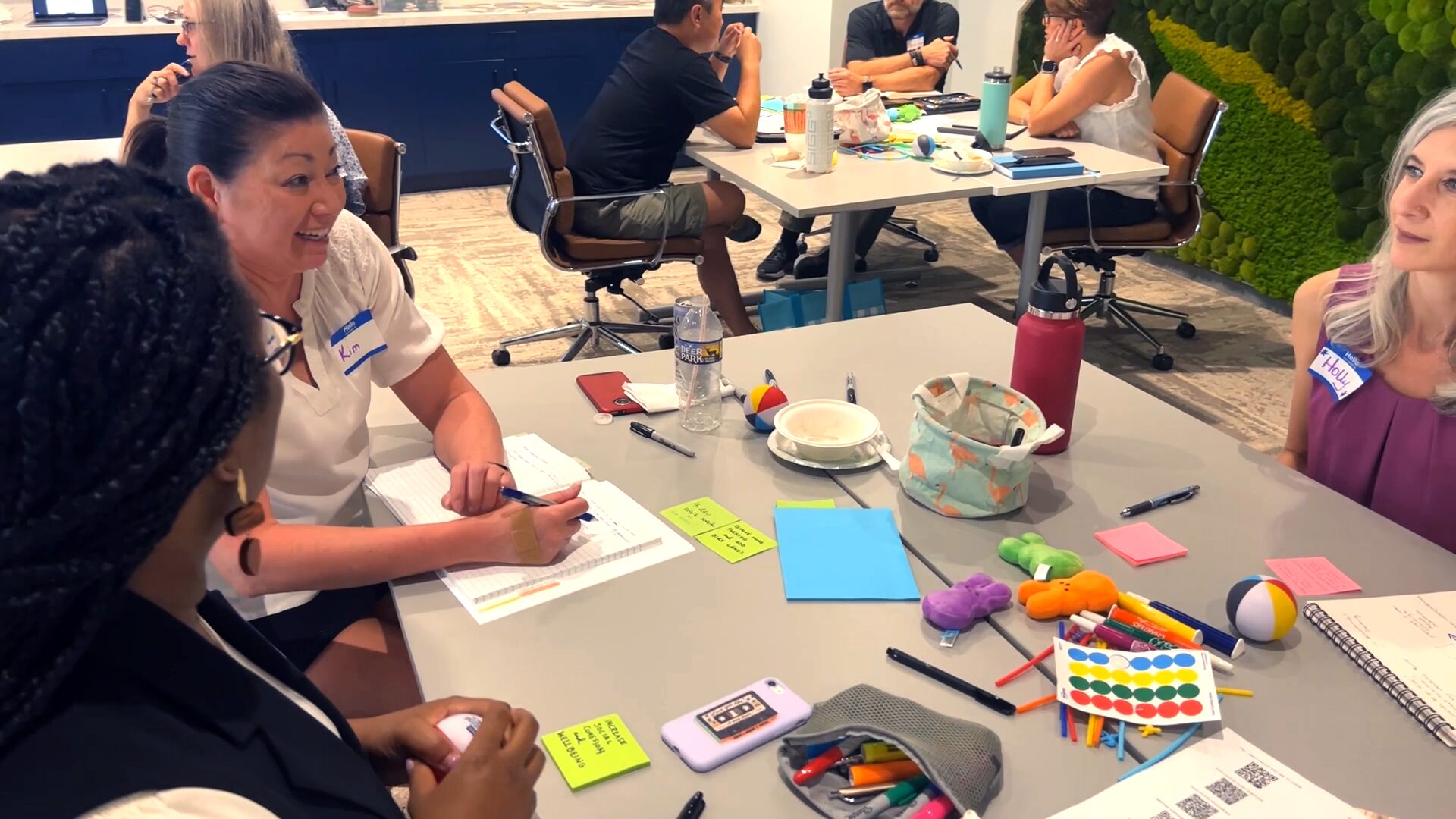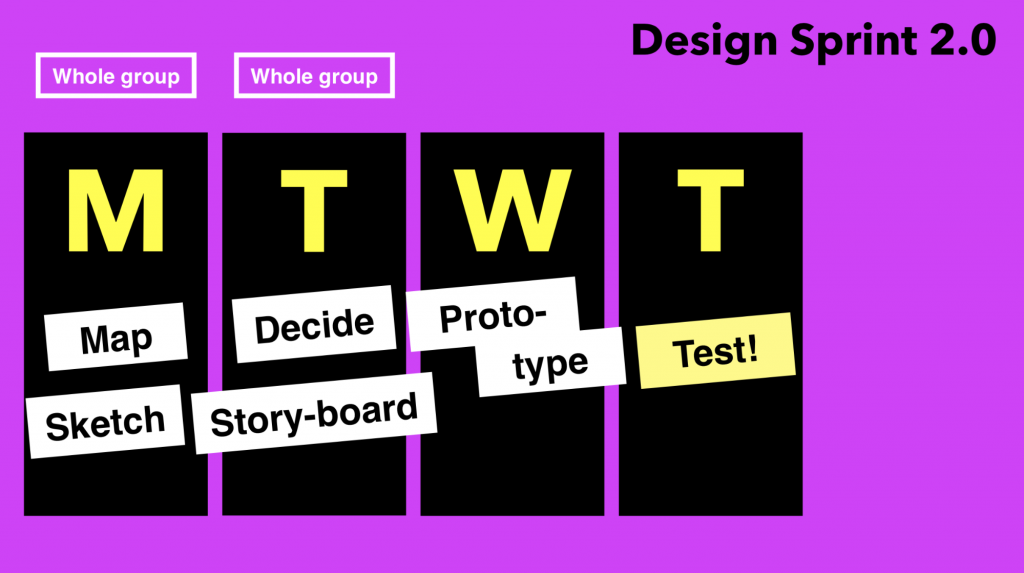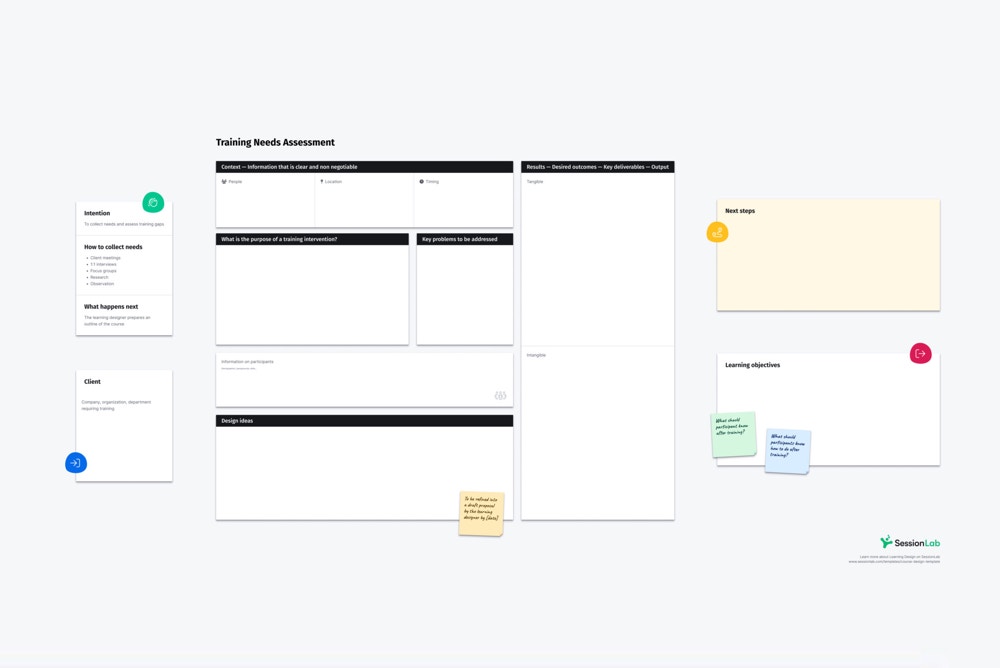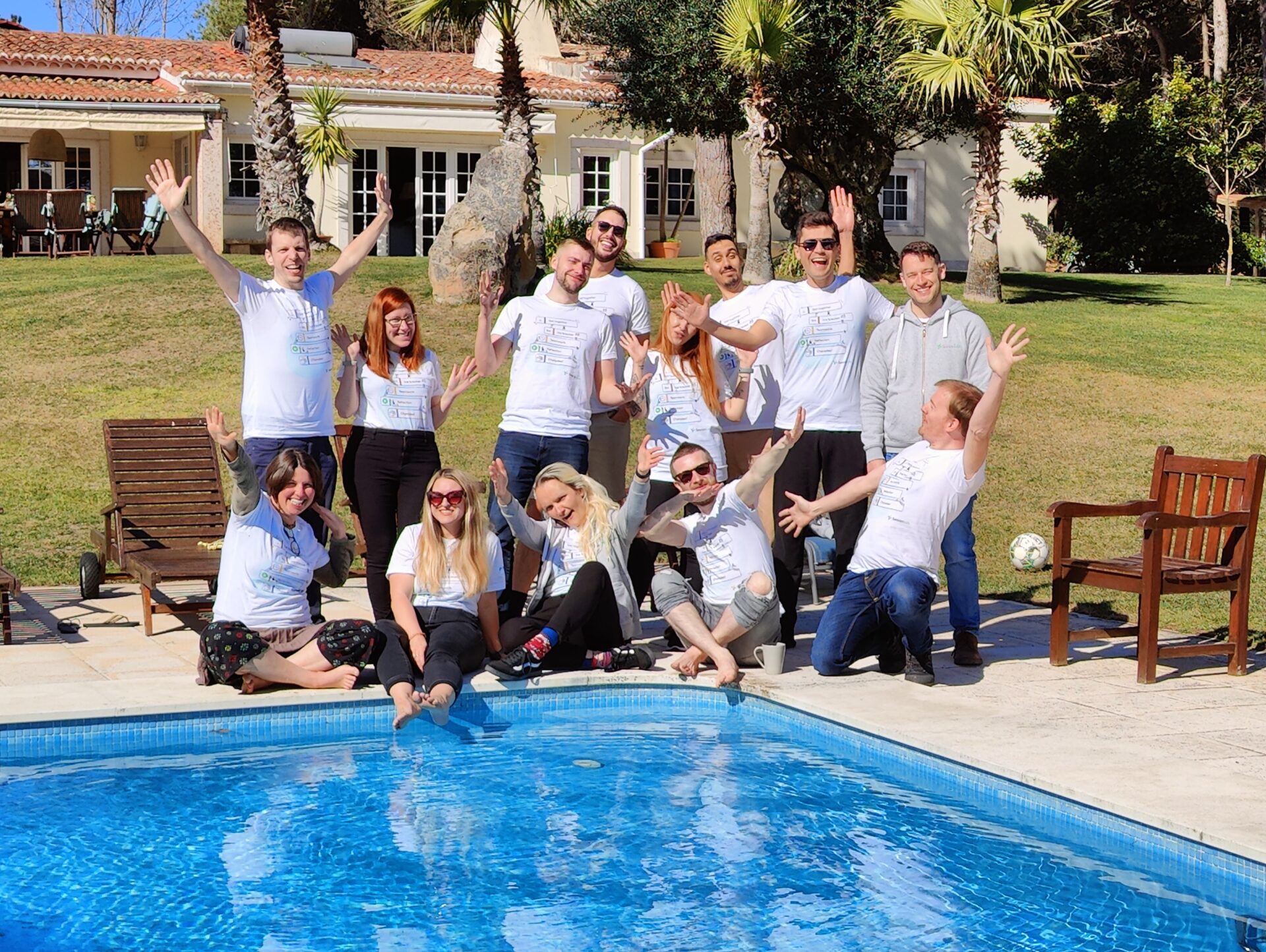Library of facilitation techniques
find the right tool for your next session
Blind Square - Rope game
The Six Thinking Hats
The Six Thinking Hats are used by individuals and groups to separate out conflicting styles of thinking. They enable and encourage a group of people to think constructively together in exploring and implementing change, rather than using argument to fight over who is right and who is wrong.
I used to think...But now I think...
A simple but effective closing activity that could lead to identify the learning point or outcomes for participants and measure the change in their behavior, mindset or opinion regarding the subject.
Check-in / Check-out
Either checking-in or checking-out is a simple way for a team to open or close a process, symbolically and in a collaborative way. Checking-in/out invites each member in a group to be present, seen and heard, and to express a reflection or a feeling. Checking-in emphasizes presence, focus and group commitment; checking-out emphasizes reflection and symbolic closure.
Appreciations Exercise
When you hear about your strengths from others and acknowledge them to yourself, this builds your motivation and self-confidence.
If you do this at the end of a workshop, you go away feeling good about yourself and your colleagues too.
Snowball
Feedback: Start, Stop, Continue
Regular, effective feedback is one of the most important ingredients in building constructive relationships and thriving teams. Openness creates trust and trust creates more openness. Feedback exercises aim to support groups to build trust and openness and for individuals to gain self-awareness and insight. Feedback exercises should always be conducted with thoughtfulness and high awareness of group dynamics. This is an exercise for groups or teams that have worked together for some time and are familiar with giving and receiving feedback. It uses the words “stop”, “start” and “continue” to guide the feedback messages.
Who are you? The pirate ship exercise (dinámica del barco pirata)
This an easy but powerful exercise to open a meeting or session and get participants to reflect on their attitudes or feelings about a topic, in the organization, team, or in the project.
Walking questions
This is a great facilitation technique to answer open questions of trainees with a "What if" learning style. It prevents the facilitator from answering all questions herself. With this method trainees can:
- close knowledge gaps
- find solutions for personal problems
- imagine themselves using their new knowledge in future and prepare themselves for obstacles
Trust Battery
This self-assessment activity allows you and your team members to reflect on the ‘trust battery’ they individually have towards each person on the team, and encourages focus on actions that can charge the depleted trust batteries.
Impact and Effort Matrix
In this decision-making exercise, possible actions are mapped based on two factors: effort required to implement and potential impact. Categorizing ideas along these lines is a useful technique in decision making, as it obliges contributors to balance and evaluate suggested actions before committing to them.





